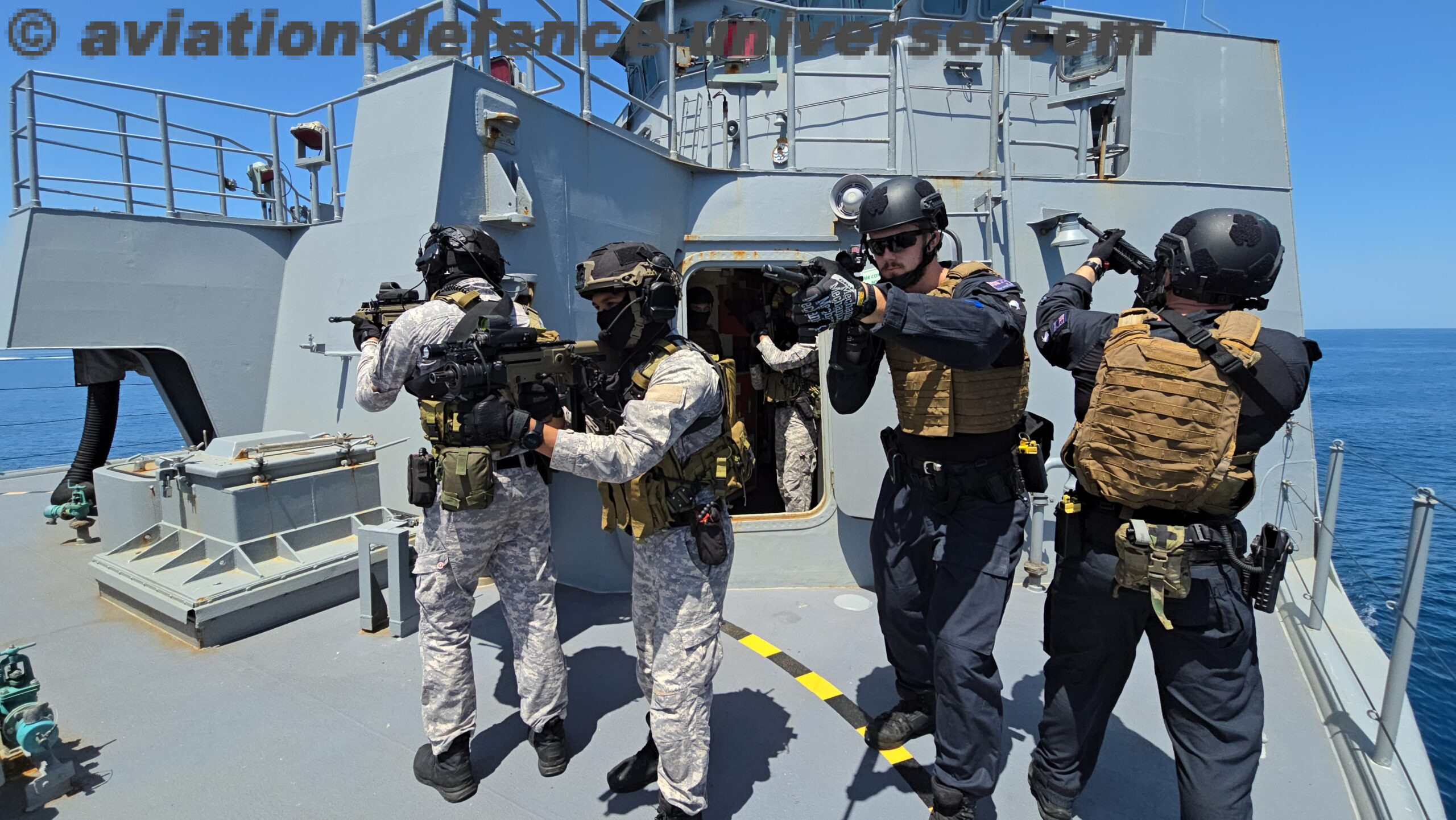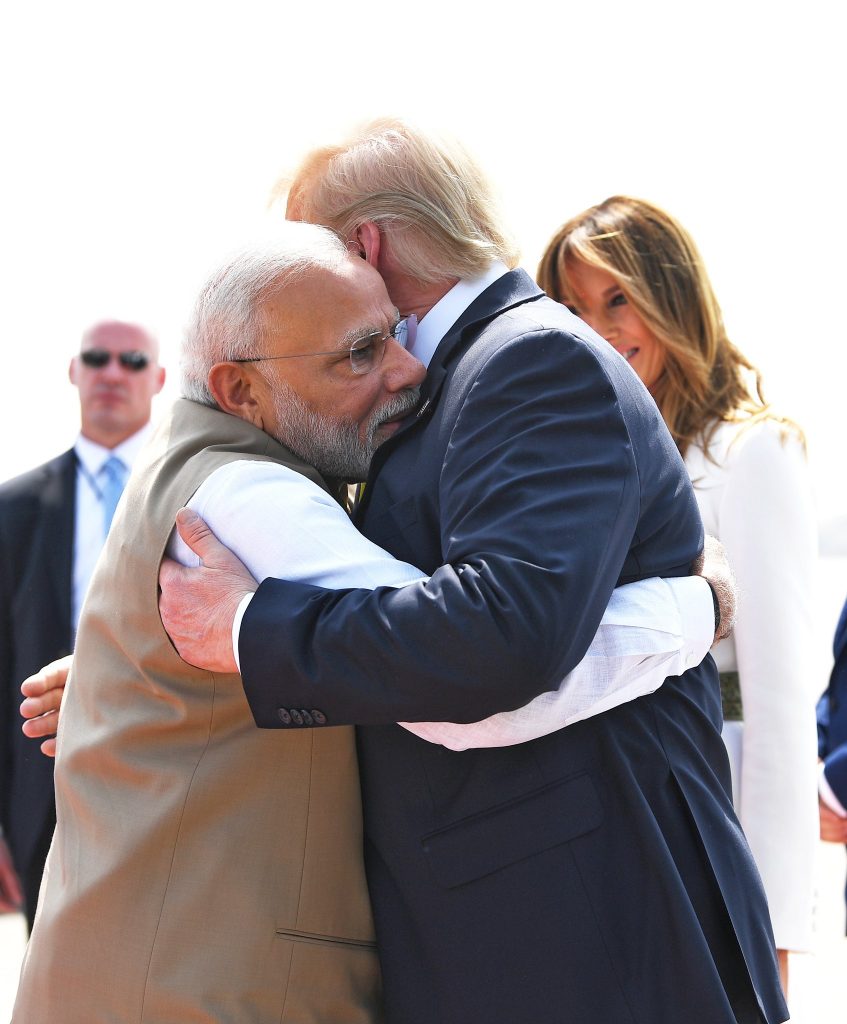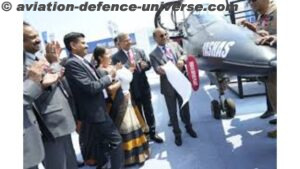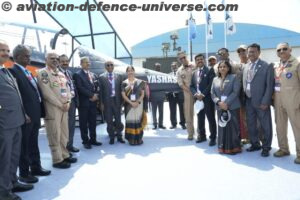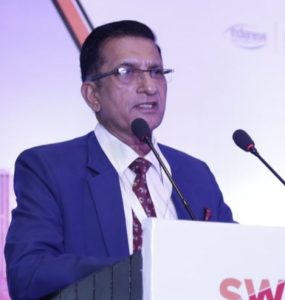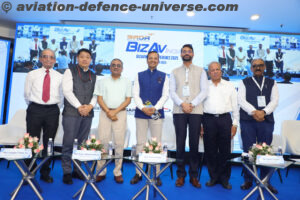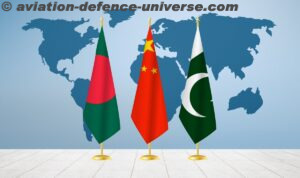- Will Modi-Trump Friendship boost ties?
By Jai Kumar Verma
New Delhi. 06 February 2025. The personal rapport between Indian Prime Minister Narendra Modi and U.S. President Donald Trump played a significant role in strengthening Indo-U.S. relations during Trump’s first term (2017-2021). This friendship was characterized by high-profile state visits, defence cooperation, economic engagements, and a shared vision for countering China’s influence in the Indo-Pacific. As Trump is back in White House for his second term (Trump 2.0), will Modi-Trump equation further shape the trajectory of Indo-U.S. ties?
The United States President Donald Trump in his second term is expected to emphasise more on close ties with India especially in defence and security. The loyalists of Trump claim that he is a “Year Nine president” rather than a “Year Five president,” because he had been thinking about the national as well as international issues even while he was out of office over the past four years.
The first proof is Trump’s selection of Marco Rubio as the United States, Secretary of State, who is known for his strong views against China. Rubio met Quad Minsters on his first day in office. Quad is a diplomatic partnership and its main objectives include working for a free, open, prosperous, and inclusive Indo-Pacific region, with aim to counter the influence of China and reduce its economic and military dominance in the region, includes India, Japan, Australia and the United States. Rubio’s first meeting with ministers of Quad nations, indicates the importance U.S. attaches to these countries.
Trump invited Prime Minster Modi to visit U.S. and it is expected that Modi would be visiting Washington this month. If the visit materialises then the visit would be before the visit of US’ European allies. Modi and Trump are also expected to meet in Paris on the sidelines of the AI Action summit. Trump is also likely to visit India in April this year. Both these visits would be crucial in chalking out India-U.S. relations in Trump 2.0.
India may face problems pertaining to the U.S. immigration policies as well as the duties on Indian products. These policies of Trump may be impulsive, transactional and harsh but in view of personal relations between Trump and Modi and former’s desire to contain China, it is anticipated that relations between Washington and Delhi will be strengthened. On first of February Trump signed first executive order on tariffs under which U.S. has imposed 25% duty on Canadian and Mexican goods and 10% duty on Chinese goods. The Canadian energy products will face 10% duty. All these three countries are expected to retaliate. However, Trump has not put any duty restriction on India so far. However the 25% tariffs on Mexican and Canadian imports have been suspended for 30 days
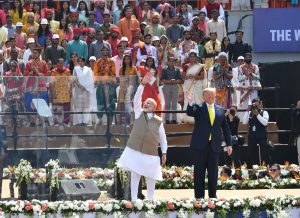 In his first term Trump gave more importance to ‘Asia Pacific’ however in his second term he is emphasising more on ‘Indo-Pacific’. In 2018 US Pacific Command was renamed as US Indo-Pacific Command. In Trump 2.0 it is expected that he would strengthen bilateral defence and security ties with ‘like-minded’ nations especially India. Although Trump likes bilateral ties more than multilateral and institutional outfits but the importance of regional groupings like Quad and Squad (a group consisting of U.S., Japan, Australia and Philippines) would enhance and more members may join these organisations. Trump would also like that India works in leadership role as a close ally of U.S. in neutralising China. Trump would continue to have security alliances with ‘like-minded’ countries as he had in his previous term. He had security alliance with Japan in which Senkaku Island was also included. Trump would also like to bring back Philippines under U.S. fold.
In his first term Trump gave more importance to ‘Asia Pacific’ however in his second term he is emphasising more on ‘Indo-Pacific’. In 2018 US Pacific Command was renamed as US Indo-Pacific Command. In Trump 2.0 it is expected that he would strengthen bilateral defence and security ties with ‘like-minded’ nations especially India. Although Trump likes bilateral ties more than multilateral and institutional outfits but the importance of regional groupings like Quad and Squad (a group consisting of U.S., Japan, Australia and Philippines) would enhance and more members may join these organisations. Trump would also like that India works in leadership role as a close ally of U.S. in neutralising China. Trump would continue to have security alliances with ‘like-minded’ countries as he had in his previous term. He had security alliance with Japan in which Senkaku Island was also included. Trump would also like to bring back Philippines under U.S. fold.
During Trump’s first term, India and the U.S. signed pivotal agreements like the Communications Compatibility and Security Agreement (COMCASA) and the Basic Exchange and Cooperation Agreement (BECA), which enhanced military intelligence sharing. Now, with India keen on joint development and production of military technology—including fighter jet engines and drones under the ‘Make in India’ initiative—Trump is likely to push for deeper defence technology collaboration. U.S. arms sales to India have already exceeded $25 billion since 2007, and with the recent agreement to supply 31 MQ-9B drones, future deals may see an expansion in co-development initiatives.
Trump who wants speedy progress of U.S. would like to sell more defence equipment to India. Now India is stressing for joint development and joint production of military equipment instead of outright import. India wants to produce jointly fighter engines, drones etc. under India’s “Make in India’ policy. The U.S. is India’s biggest trading partner and in 2023-24 the bilateral trade was more than $118 billion and India had the surplus of $32 billion. Now India is likely to enhance import of gas and oil from U.S. which may reduce India’s surplus.
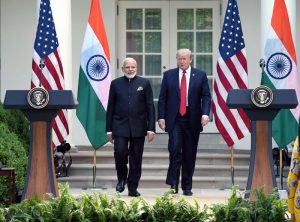 Trump would help and encourage India to increase its naval presence in Indian ocean and enhance its capability so that it can counter China in Indian ocean. In view of India’s military and economic capabilities Delhi is in a position to challenge Beijing in safeguarding critical sea lanes. India proved its abilities in June 2020 in Galwan valley where the forces of both countries fought in which 20 Indian soldiers were martyred and according to reports China lost about 40 army personnel. India does not want a confrontational approach with China although U.S. under Trump may want India to be more aggressive towards China. Trump may also like that India should share more economic burden in regional security. India would also like to have strategic partnership with other countries especially with Russia. Although Delhi would like to modernise and increase its defence capabilities but would not surrender its autonomy.
Trump would help and encourage India to increase its naval presence in Indian ocean and enhance its capability so that it can counter China in Indian ocean. In view of India’s military and economic capabilities Delhi is in a position to challenge Beijing in safeguarding critical sea lanes. India proved its abilities in June 2020 in Galwan valley where the forces of both countries fought in which 20 Indian soldiers were martyred and according to reports China lost about 40 army personnel. India does not want a confrontational approach with China although U.S. under Trump may want India to be more aggressive towards China. Trump may also like that India should share more economic burden in regional security. India would also like to have strategic partnership with other countries especially with Russia. Although Delhi would like to modernise and increase its defence capabilities but would not surrender its autonomy.
The U.S. National Security Advisor Michael George Glen Waltz is an advocate of close India – U.S. relationship. He co-chaired the Congressional India Caucus and supported legislations which favoured India. Trump 2.0 would be more favourable for India and it can strengthen its defence capabilities and can also progress economically. However, India has to be more careful not to become totally aligned or dependent on any country including U.S. Trump also believes in reciprocity hence India should not expect much favour from the present U.S. administration.
 India has to be cautious as Trump has threatened to take punitive action if BRICS works on ‘de-dollarisation’. Trump wrote on social media that “We require a commitment from these countries that they will neither create a new BRICS currency nor back any other currency to replace the mighty US dollar or they will face 100 per cent tariffs and should expect to say goodbye to selling into the wonderful US economy… They can go find another sucker.”
India has to be cautious as Trump has threatened to take punitive action if BRICS works on ‘de-dollarisation’. Trump wrote on social media that “We require a commitment from these countries that they will neither create a new BRICS currency nor back any other currency to replace the mighty US dollar or they will face 100 per cent tariffs and should expect to say goodbye to selling into the wonderful US economy… They can go find another sucker.”
India should also be careful as Trump is favourable to Israel, would be hostile towards Iran and oppose Russia, China and Iran alliance as this grouping would be against U.S. interests. India would also suffer as India, Russia and Iran are cooperating in the construction of 7,200 km long International North-South Transport Corridor (INSTC). The INSTC is beneficial to India as it would cut down goods movement between India & Russia to 20 days from present 40 days. It would also cut down the transportation cost to about 30 percent. India has to play its cards diplomatically as it successfully played during Russia-Ukraine war or Israel-Palestine struggle.
 Trump’s second term presents both opportunities and challenges for India-U.S. relations. While defence and security cooperation are set to deepen—especially in countering China—the transactional nature of Trump’s foreign policy requires India to adopt a pragmatic and balanced approach. With both leaders emphasizing self-reliance—Trump’s “Make America Great Again” aligning with Modi’s “Viksit Bharat”—the potential for collaboration in critical technologies, cybersecurity, and supply chain diversification is immense. However, India must remain cautious of unpredictability of policies, trade imbalances, and geopolitical complexities, ensuring that its national interests remain at the forefront of this evolving partnership.
Trump’s second term presents both opportunities and challenges for India-U.S. relations. While defence and security cooperation are set to deepen—especially in countering China—the transactional nature of Trump’s foreign policy requires India to adopt a pragmatic and balanced approach. With both leaders emphasizing self-reliance—Trump’s “Make America Great Again” aligning with Modi’s “Viksit Bharat”—the potential for collaboration in critical technologies, cybersecurity, and supply chain diversification is immense. However, India must remain cautious of unpredictability of policies, trade imbalances, and geopolitical complexities, ensuring that its national interests remain at the forefront of this evolving partnership.
The Modi-Trump friendship may play a pivotal role in reshaping Indo-U.S. relations, especially in defence, trade and strategic affairs. Trump’s second term presents opportunities for deeper cooperation but also challenges related to trade, immigration, and geopolitical balancing. Modi’s leadership will be crucial in ensuring that India maximizes its strategic partnership with the U.S. while maintaining its independence in global affairs.
(Jai Kumar Verma is a Delhi-based strategic analyst and member of United Services Institute of India and The Manohar Parrikar Institute for Defence Studies and Analyses. The views in the article are solely the author’s. He can be contacted at editor.adu@gmail.com)



































